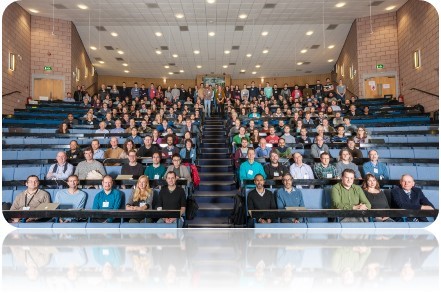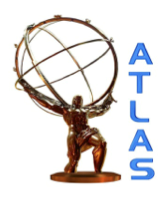Annual Meeting brought the ATLAS-UK Collaboration to Liverpool

The first week of January saw no less than 210 physicists working on the ATLAS experiment attending the annual ATLAS-UK meeting. This year hosted by our department’s ATLAS group and chaired by Professor Max Klein.
The annual meeting was devoted to an overview of the status of ATLAS, introduced by the collaboration’s Spokesperson, Professor Dave Charlton, as well as to discussions of the physics results as presented mostly by students, among them Ellis Kay from the Liverpool group. Upgrade projects directed to the preparation of the high luminosity phase of the LHC, expected to commence in 2025 and to run until 2037, were also presented.
The meeting was an excellent opportunity to see just how important the contribution of UK-based physicists to the ATLAS experiment across all different areas of research is. For example, amongst the recent highlights of ATLAS research which were presented at the meeting were the high precision mesaurements of vector boson production at the LHC and the ATLAS measurement of the mass of the W boson - major contributions to these measurements were made by Liverpool experts.
Early January was a particularly good moment to reflect on the past year and recognise the big success of both, the LHC accelerator and the ATLAS detector, as 2016 was a record year in terms of experiment performance. The new inner all-Silicon tracker will be in the centre of the ATLAS upgrade and ATLAS-UK will make leading contributions to it, as presented by Dr Helen Hayward, now principal investigator for ATLAS Liverpool on this important upgrade. Tours of the detector laboratories on the ground floor of our Oliver Lodge building completed the meeting programme.
The University's Vice-Chancellor, Professor Janet Beer, opened the workshop and took part in the public lecture about particle physics, as well as the gala dinner in the Anglican Liverpool Cathedral. In her opening speech, Professor Beer talked about the strong support of the University for ATLAS and a "lineage back to Professor Chadwick". She also highlighted the key principles for research at the University of Liverpool: "We place huge value on the benefits of international research at Liverpool. It enables teams to work across borders so that researchers from all over the world can pool their knowledge, infrastructure and resources to achieve far more together than they could alone."
This important aspect was also emphasized in the after dinner speech of Professor Daniela Bortoletto (University of Oxford), who reminded all participants of the common values in culture and science, and their importance for the future of society in general.
ATLAS colleagues from 15 universities and the Rutherford Appleton Laboratory left the meeting with the impression that Liverpool has once again been a very strong and reliable partner in the collaboration. Its researchers, infrastructure and support ensure that this will continue in the future.
